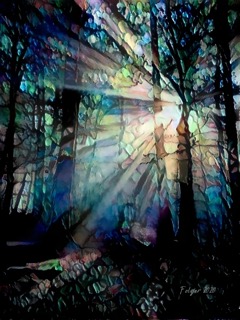Seekers recognizes that any member of the community may be called upon by God to give us the Word, and thus we have an open pulpit with a different preacher each week. Sermons preached at Seekers, as well as sermons preached by Seekers at other churches or events, are posted here, beginning with the most recent.
Click here for an archive of our sermons.
Feel free to use what is helpful from these sermons. We only ask that when substantial portions are abstracted or used in a written work, please credit Seekers Church and the author, and cite the URL.
A Sermon on Love by Anita Jackson

The fourth Sunday after the Epiphany
January 30, 2022
May the words of my mouth and the meditations of my heart be pleasing to you Lord, my Rock and my Redeemer
1 Corinthians 13:1-13 – And the Greatest of These is Love
In last week’s reading from 1 Corinthians Chapter 12 we heard about the church in Corinth and all the spiritual gifts they possessed – speaking in tongues, prophecy etc. and yet Paul ended the chapter by reminding them that Love was the greatest gift.
Today we heard 1 Corinthians Chapter 13 — the Love Chapter – you’ve probably heard it hundreds of times — everyone knows it – How many of you used it at your wedding? I know I did
Paul tells us that love is the greatest of all and demonstrates the supremacy of love over all other things as the measure of our lives. This entire chapter is one of the most beautiful and meaningful passages in all of Scripture.
Verses 1-3 answer the “How” question: “How does God measure our lives?” The answer is: “Love.” The song Seasons of Love from Rent – one of my all-time favorite shows says the same thing. Nothing we say, nothing we have, nothing we do has any lasting value apart from love. Love is the standard by which God measures our lives.
“Jesus and Democracy” by Pat Conover

The third Sunday after the Epiphany
January 23, 2022
Last August I preached about the Deuteronomic revolution and the roles of prophets and priests in challenging authoritarian kings in favor of rule by Mosaic law preserved and interpreted by priests and prophets. The historical context for this sermon is the same, the return of Jews from Babylonian captivity, the battles to dominate local tribes that had taken over their previous lands, building the Second Temple and then the wall around Jerusalem. The hero in the August sermon was good King Josiah contrasted to bad king David.
The sources for the Nehemiah lectionary scripture for today comes a bit later in the same historical period, the return of Jews from Babylon. Ezra is the hero in this lectionary scripture, a prophet/priest who arose from the common people, not from a priestly line.
The stories in Ezra and Nehemiah were written down in the 4th century bce, a time when Jews were spreading around the Mediterranean and working out Judaism that was not focused on stories of a covenant of divine right to a promised homeland.
Jean Brown tells a story and weaves a call

The second Sunday after the Epiphany
January 16, 2022
This morning, Jean Brown, who is a community member of the Dayspring Church, told the story of Sky Woman as recounted in the book Braiding Sweetgrass, by Robin Wall Kimmerer. She reminded us that stories help us findour place in the world, and how the scriptures function in that way. Asking what seeds we might be carrying in this season, she spoke of her own story about discovering the Church of the Saviour, where small groups deeply listened to one another, in the spirit of remaining open and deeply present to the places where they found one another.
Jean continued with a story out of her own life, in which she came from southwest Virginia, where she was serving a small Presbyterian church, to attend a Come and See event. For many years after that, she tried to get that church to learn the CofS way of evoking one another’s gifts. Eventually, she left that place and, taking a leap of faith, fell—or jumped—to DC. Surrendering herself to the Spirit, she hoped to become part of the love made visible in the world. It is up to us, she said, to say “yes, I am yours, show me the way.”
“The Wheat and the Chaff” by Erica Lloyd

Epiphany/Baptism of Jesus
January 9, 2022
Let me start off with an apology: I’m not preaching about the wise men or the star or anything in the gospel reading you just heard! When I reached out to Deborah about preaching, I hadn’t realized we would be celebrating Epiphany this Sunday and would not be reading from the normal gospel selection from the lectionary. Deborah encouraged me to go ahead – and if I had any lingering doubts about sticking with this sermon, they were put to rest when I discovered Marjory had shared a gospel reflection for Inward/Outward yesterday on the very same theme, without either of us knowing what the other was thinking.
So, since you haven’t heard it yet, let me take a moment and share with you the lectionary reading that I will be preaching from, Luke chapter 3, verses 15-22: As the people were filled with expectation, and all were questioning in their hearts concerning John, whether he might be the Messiah, John answered all of them by saying, “I baptize you with water; but one who is more powerful than I is coming; I am not worthy to untie the thong of his sandals. He will baptize you with the Holy Spirit and fire. His winnowing fork is in his hand, to clear his threshing floor and to gather the wheat into his granary; but the chaff he will burn with unquenchable fire.” Now when all the people were baptized, and when Jesus also had been baptized and was praying, the heaven was opened, and the Holy Spirit descended upon him in bodily form like a dove. And a voice came from heaven, “You are my Son, the Beloved; with you I am well pleased.”
I know “the point” of this passage is Jesus’s baptism, but reading this, what grabbed my attention was mention of the wheat and the chaff. “To separate the wheat from the chaff” is a Biblical image that has become a common idiom – to separate the valuable from the worthless, or as Merriam-Webster defines: “to judge which people or things in a group are bad and which ones are good.”
“Invincible Summer” by John Morris

Christmastide
January 2, 2022
Invincible Summer
Howard Thurman
Let the bells be silenced
Let the gifts be stillborn
Let cheer be muted
Let music be soundless
Violence stalks the land
That’s a quote from one of the Inward/Outward readings this week, and that’s about how I feel, a lot of the time.
We are in the midst of winter. It’s a new calendar year, but the Earth has not renewed herself yet. For us in the northern hemisphere, in the United States, the days are short, the light feeble. And what a strange winter it’s been – tornados, floods, brushfires. It’s enough to make a person despair of anything ever getting better. But we also know about seasons. There’s never yet been a winter without a spring. Somehow Mother Earth does bloom again, and we, her creatures, are released from the grip of frost and foreboding.
My own mood is very wintry, on this January 2nd. I have much to be grateful for each day, and I have led a privileged and grace-filled life. But what turns my spirit cold inside is what I see happening to our country. There is every chance that I, that every one of us, is going to lose some of the most precious privileges – we like to call them “rights” — that we have always enjoyed. I’m not an especially patriotic person. I think the U.S. has done some things very well, others very poorly. But I truly never thought that our long, slow path toward equality at the ballot box – just to take one instance – would be reversed, with the express intent of allowing one political party to gain power illegitimately. To be honest, I thought I would die before anything truly drastic happened to the U.S. — which is the sort of comfort a white male can take, surveying his own enviable position.
Well, it hasn’t worked out that way. The bell is tolling, a lot sooner than I expected.